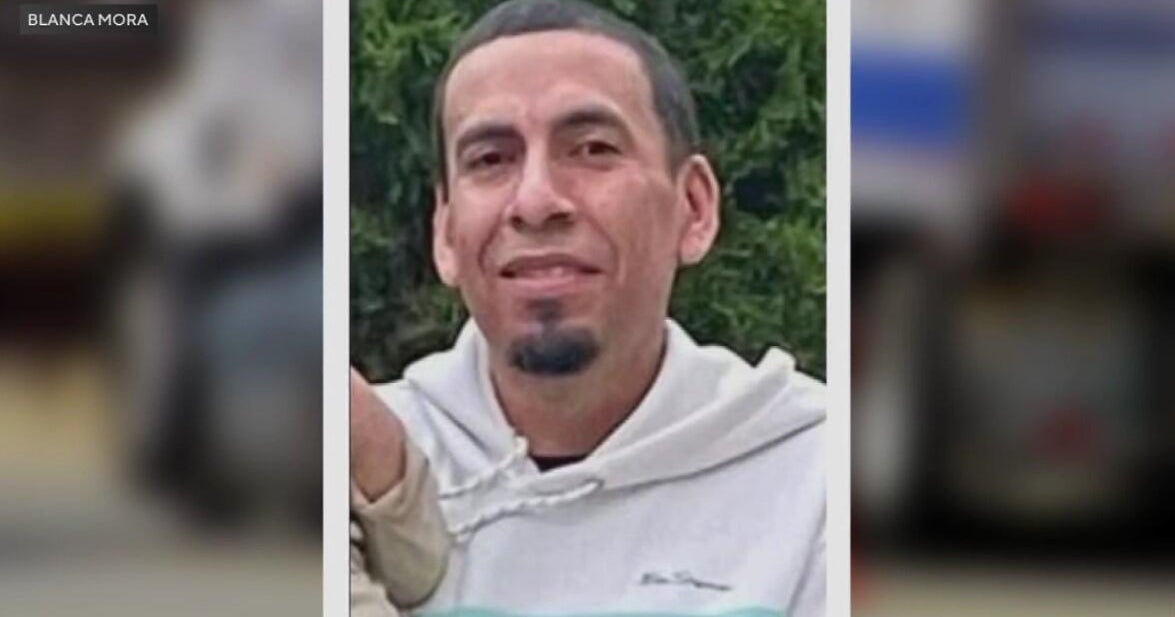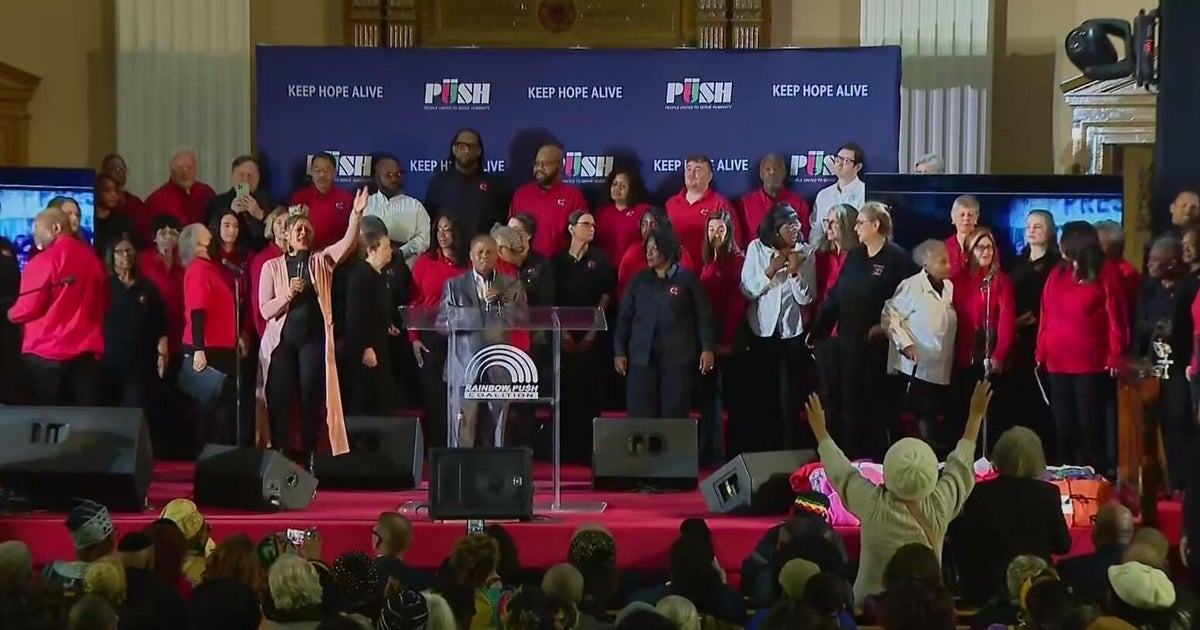Miami Frita Showdown Settles Frita Debate
MIAMI (AP) — It was the battle of the fritas in South Florida, Wednesday. Some people said it was going to be a showdown between the king and the magician.
The king is Victoriano Benito Gonzalez, an immigrant who once made the paprika-spiced meat patties topped with shoestring fries and tucked in a roll of Cuban bread from his brother's stand in the city of Placetas and went on to establish a successful chain of fritas, as the burgers are called, in exile.
The magician is Ortelio Cardenas, who learned how to make fritas working in Gonzalez's restaurant and later started his own restaurant after a bitter falling-out with the boss.
On Wednesday, the king's daughter and the magician went head to head in a competition in Miami to determine who makes the world's best frita. Four judges sampled five Cuban-style hamburgers and dozens of frita fans joined them in the tasting.
Cardenas, 74, stood behind a serving counter, as dozens of his freshly made fritas were delivered by young workers from the kitchen.
"We know what we're doing," he said calmly.
Two stands down, Mercedes Gonzalez was ready to defend the burger her father perfected.
"I would love to win," she said.
Fritas first appeared in propane-fueled food carts on Havana street corners in the 1930s. Whether the first frita maker had the American hamburger in mind is the subject of debate. Some consider it an entirely Cuban creation, made originally with ground-beef from another classic dish, the tomato-based picadillo.
Others believe the similarities — the round meat patty sandwiched between a roll, and the strong U.S. influence on the Caribbean nation at the time of the frita's birth— are undeniable proof of their connection.
In any event, fritas soon became a national snack, perfect fare after a ballgame, an afternoon at the movies or late-night crawl through the bars and cabarets of Havana.
But in the years after the 1959 communist revolution, the unique hamburgers slowly started to disappear.
Thousands of Cubans fled as private businesses and property were nationalized, and the frita's main component, ground beef, became hard to come by. Soon, the frita-selling food carts were gone.
What happened to the frita was less an extinction than a migration, however. The burgers soon began to appear 90 miles across the Florida Straits, in Miami, where exiles were steadfastly re-creating the restaurants, book stores and businesses they'd left behind.
Dagoberto Estevil opened the first frita joint, a small shop in Miami's Little Havana neighborhood, in 1961. It drew hundreds, even though it was designed to fit no more than 14. For 15 cents a burger, exiles savored the flavorful meat and crunchy fries on fresh Cuban bread, the taste of a lost home.
Other restaurants specializing in fritas followed.
Gonzalez, who had been making fritas since he was 12, opened one of the most successful. He called it El Rey de Las Fritas, or King of the Fritas.
Mercedes Gonzalez practically grew up in the restaurant.
"My dad wanted me to go into any other career but the restaurant," she recalled.
But she was proud of the family business and couldn't imagine making a living any other way.
Her uncle, Ortelio Cardenas, soon came to think the same way.
Cardenas, who married Victoriano Benito Gonzalez's sister, had already established a life working in a warehouse in New York City by that time, but said his brother-in-law persuaded him to help out at the Cuban restaurant.
Cardenas complied and quickly became one of the most inventive — and controversial — frita makers in town. It was he who widely credited as being the first to add American cheese to the frita, a bold move for a dish that had remained largely intact in exile.
Cardenas, now 74, said he felt there was just something missing in the frita. He saw the American burger restaurants putting cheese on their patties.
"I said, 'Let me try that,'" he recalled.
His clients didn't immediately jump to try it.
"How are you going to put cheese on a frita?" they said. "You're crazy."
The idea, however, did catch on, and with time became a best-seller. What didn't last was Cardenas' friendship with his brother-in-law.
The details of their falling-out are not publicly known. Mercedes Gonzalez said it was a clash of personalities: two bosses working under one roof who were better off operating separately. Cardenas, for his part, said nothing happened at all. But whatever did occur, the two men never spoke again, Mercedes Gonzalez said.
Three years after coming to Miami to work at El Rey de las Fritas, Cardenas called it quits and started his own business. He called it El Mago de las Fritas: The Magician of the Fritas.
Separately, each became a story of success in exile.
The king of the fritas went on to open a chain of restaurants. He died eight years ago, leaving the business in the devoted hands of his children, including Mercedes Gonzalez.
Meanwhile, the frita magician continued making hamburgers with his own special recipe from his single restaurant.
Each has achieved some level of fame: El Rey de Las Fritas has been featured in food shows on national television, and President Barack Obama stopped in to try a burger made by the frita magician.
Within a larger movement across the country that has propelled burgers into semi-gourmet status in recent years, the frita has started to gain attention outside Cuban Miami as well.
"I love it," said George Motz, who has featured both Gonzalez's and Cardenas' restaurants on his Travel Channel show "Burger Land." ''The first time I had one, I had another."
Motz called the frita "one of the greatest expressions of the Cuban-American experience."
On the island, though, there are many Cubans today who don't even know what it is.
"Frita?" said Mayra Estanque, a state employee in Havana. "I really don't recall anything like that."
Sef Gonzalez, who runs a blog called Burger Beast, has been one of the frita's main advocates. He organized the Frita Showdown on Wednesday. It wasn't to settle a score or bolster any rivalries.
"I just wanted to kind of give the frita its day in the spotlight," he said.
Wednesday's contest took place at a casino popular with older Cuban exiles, an aging gray-and-white building that features slot machines and greyhound racing in the middle of Miami's suburban sprawl.
Five restaurants, all claiming to have the best frita in town, went burger to burger. A panel of judges, all respected chefs and food aficionados, tasted each one, not knowing which restaurant made it. More than 100 frita enthusiasts sampled the burgers as well, as salsa classics played in the background.
At shortly before 9 p.m., the winner was announced: The frita king.
"That was the classic frita," said Randy Fisher, one of the judges.
Mercedes Gonzalez and her husband went down to the stage, where she accepted the prize. Cardenas, dressed in a crisp white shirt, his hair the color of salt, took a sip of red wine from a plastic cup.
"This is beautiful," Mercedes Gonzalez said as she clutched a trophy made from a hamburger flipper. "Long live the Cuban frita!"
Fans came up to Cardenas, calling him the magician and saying how much they liked his fritas. Later, he posed for a picture with his niece; the two are on friendly terms.
"Someone had to win," he said. "To me, we're all equals."
(TM and © Copyright 2013 CBS Radio Inc. and its relevant subsidiaries. CBS RADIO and EYE Logo TM and Copyright 2013 CBS Broadcasting Inc. Used under license. All Rights Reserved. This material may not be published, broadcast, rewritten, or redistributed. The Associated Press contributed to this report.)







